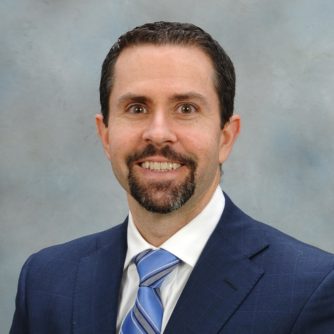215.348.1776
Estate Planning
Estate Planning Documents
“Half of Americans don’t have any of the most basic estate planning documents, including a will, a living will and financial and medical powers of attorney, needed to protect them (and their assets) if they’re incapacitated.”
Forbes.com, citing a Harris Interactive study conducted for Lawyers.com in 2010.
At a minimum, the following instruments are the necessary components of an estate plan:
- Last Wills and Testament (simple and complex).
- Powers of Attorney
- Advanced Healthcare Directives/Living Wills
- Trusts; including, but not limited to, Irrevocable Life Insurance Trusts, Gifting Trusts and Generation-Skipping Trusts
Creating an estate plan is not just prudent, it is essential. An estate plan provides peace of mind in knowing that one’s assets are appropriately preserved for future generations, beloved family members are adequately protected and all last wishes are carefully memorialized.
Last Will and Testament
Your Will directs to whom and how your assets will be distributed after your death. It designates the court-appointed legal representative (Executor) who will carry out your wishes. It nominates a trustee or trustees to manage any assets that your Will directs be paid into a trust. The only assets that are controlled and distributed under the terms of your Will are assets held individually in your name that do not have a designated joint tenant or beneficiary who survives you. If you have minor children, your Will also will name a guardian or guardians to care for them until they reach majority age.
Durable Powers of Attorney
A General Durable Power of Attorney appoints someone you trust – your “Agent” – to act for you with respect to any assets that are not, or cannot, be retitled in the name of your trust (like retirement plans). You can decide whether you want the power to be effective immediately or whether the power becomes effective only when you become legally incapacitated – that is, only in the event that you become unable to effectively manage your property or financial affairs. A General Durable Power of Attorney does not authorize anyone to make health care decisions for you. Your Agent is ordinarily authorized to transfer property to your living trust, to make withdrawals from your retirement assets, to prepare and sign tax returns, to access a safe deposit box in your name, or to do anything else that you want your Agent to do to take care of your personal financial affairs. Your General Durable Power of Attorney may also contain your wishes for the nomination of a Guardian for you, if you become legally incapacitated. This will authorize your Guardian (sometimes also called a Conservator) to make arrangements for your personal care and comfort, in addition to your financial affairs. When a General Durable Power of Attorney is prepared to authorize your Agent to perform only very limited acts on your behalf it is sometimes called a Special Durable Power of Attorney. While you can revoke your General Durable Power of Attorney at any time, any Power of Attorney is automatically revoked and becomes legally ineffective when you, the Principal, pass away.
Medical Powers of Attorney and Advance Health Care Directives
A Durable Power of Attorney for Health Care Decisions authorizes your Agent to make medical decisions for you if you cannot express your wishes or make the decisions yourself. It also authorizes your Agent to obtain copies of your medical records. If you have been to the doctor recently, you probably signed a statement concerning the doctor’s right to release your medical records. This is because federal law, the Health Insurance Portability and Accountability Act (“HIPAA”), imposes liability on health care providers for releasing this information without your authorization. So that your loved ones can access your medical records in an emergency, our Health Care Powers of Attorney contain a HIPAA Authorization which authorizes the release of this information only to the persons you choose.
A “Living Will” (also called an Advance Health Care Directive) serves to inform your attending physician, if it is your wish, that you do not want extraordinary medical measures taken in the event of a terminal illness, especially those that would cause you pain or discomfort, if those measures would only prolong the natural dying process. This document backs up your Durable Power of Attorney for Health Care Decisions.
An Anatomical Gift authorization gives your consent to the transfer of some or all of your organs after death to living persons who need them. This is part of our firm’s Advance Health Care Directive or Living Will.
Trusts
Trusts are often created in a will, for example to provide a structure to administer assets for minors or others who may not have the capacity to handle these assets on their own. Trusts also can be created at any time in your life for a variety of purposes, including for income tax, estate tax or Medicaid planning; to limit liability; and to manage and protect assets held for minors or persons with special needs.
Why you need a Will?
The death of a loved one or close friend is tragic enough without adding the complication of having an estate with no will. The absence of a creates confusion and uncertainty as to the deceased’s exact intentions, and can also cause extra taxes and costs to be incurred by heirs and beneficiaries, resulting in a smaller net estate. Even if you have a living trust, you should also have a current and properly drafted will.
If there is no Will?
Here are some problems you might encounter if you’re involved in an estate with no will.
An extensive search for a will may be required
Just because a will can’t be found right away doesn’t mean that one doesn’t exist. Safe-deposit boxes need to be located, opened (sometimes by a locksmith who drills into the box if a key can’t be located), and inspected.
Tracking down a safe-deposit box can be time-consuming. While safe-deposit boxes are often opened where one has a checking or savings account, accounts may have been opened at other institutions. In some cases, a person may even move to another city or state and never get around to moving the box’s contents.
If there’s an annual charge for a safe-deposit box, then looking at the deceased’s checkbook register over the last 12 months may show an entry for payment on a safe-deposit box. Another way to locate a will is to look at the deceased’s checkbook register and income tax returns (under Schedule A, itemized deductions) and backup information to see if an attorney’s or law firm’s name is listed or referred to.
It’s rare for someone who doesn’t have a will to leave something in writing that says “I haven’t signed a will.”
A final note: Age does not destroy the validity of a will. A valid will signed 50 years ago that hasn’t been revoked or replaced is still valid today!!!
The appointment of an estate representative is more complicated and expensive
When someone dies with a will that names an executor (the person or organization to manage the estate), the appointment of the executor is usually automatic. By contrast, when there’s no will, state law usually specifies which relatives have priority in being appointed as the estate’s administrator. Since being an administrator is a paid position, relatives may be coming out of the woodwork in an attempt to have themselves appointed. These individuals may not be the best choices to handle estate funds and responsibilities. On the other hand, relatives who have first right to be appointed under state law must be located, even if they do not wish to serve, so that they can renounce their right to letters of administration.
Having a will can save in other ways, too. A will generally waives the requirement of a bond for the executor and saves this expense for the estate. A bond is a type of insurance policy to be sure the personal representative (executor or administrator) does not mishandle or take estate assets. When there’s no will, courts nearly always require a bond. The cost of the bond varies with the size of the estate and can start at hundreds of dollars per year.
The wrong people may inherit
When there’s no will, the state “writes” a will for the deceased in the sense that it spells out who inherits the assets of the deceased. Assets may go a spouse, children, grandchildren, parents, siblings, and/or distant relatives. This may not have been what the decedent intended.
The wrong persons may pay the estate tax
If there’s no will, only certain assets may go through probate. The proceeds of assets with named beneficiaries who survive the deceased will go directly from the life insurance company or retirement plan to the named beneficiaries, thus avoiding probate concerning these assets.
If there’s an estate tax and there isn’t a will spelling out who pays estate tax on what, state law will determine who pays the federal and state estate taxes. The deceased may have intended the beneficiaries of retirement benefits to receive their share estate tax-free, with estate tax being paid from other assets in the estate. However, without a will providing for the payment of death tax, the beneficiaries of the retirement plan benefits will probably have to pay the estate tax on their share.
Money may go to children too soon
If there is no will and minor children receive a share of the estate, their share would have to be placed in a court guardianship. That means additional attorney’s fees and court expenses until the minor reaches adulthood. At that time, the child will receive the balance of his/her share in one lump-sum distribution – a situation which might be less than ideal, depending on the maturity of the heir. On the other hand, a will establishing a trust for the minor could provide for a more orderly distribution of assets over time, reduce taxes and other expenses and help assure the beneficiary’s long-term financial stability.
Actions in the probate estate may be delayed or more expensive
Often, a will provides the executor with certain “fiduciary powers” that allow it to take certain actions without getting permission from the Court. An it administrator of an estate without a will may need to seek permission from the Court to do certain things with estate assets, thereby incurring additional expenses and delays in the administration of the estate.
Higher estate or inheritance taxes may be due
There are ways to save estate (“death”) taxes by using advance planning in a will or living trust. The absence of a will or a living trust means that the opportunity to set up estate tax-saving trusts may be lost.
Estate Planning and Administration Practice Areas
Practicing Attorneys
Estate Planning Documents News
AREAS OF PRACTICE

THE CLEMONS RICHTER & REISS, PC DIFFERENCE
Scott A. MacNair
Scott A. MacNair is a graduate of the Villanova University School of Law. He began his legal career in 1998 with the Pennsylvania State Education Association where he specialized in labor and education law. In 1999, he obtained a judicial clerkship with a Court of Common Pleas Judge, the Honorable Linda K.M. Ludgate, in Berks County, Pennsylvania. In 2001, Scott obtained employment as an Assistant District Attorney with the Bucks County District Attorney’s Office.
MEMBERSHIPS & ASSOCIATIONS










